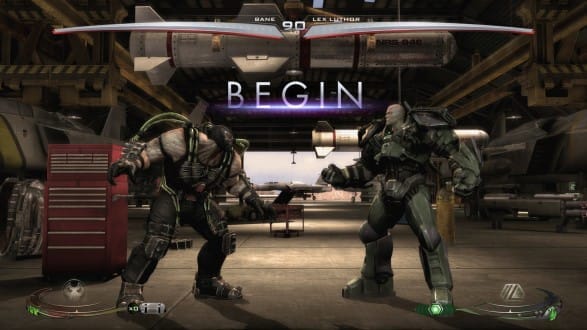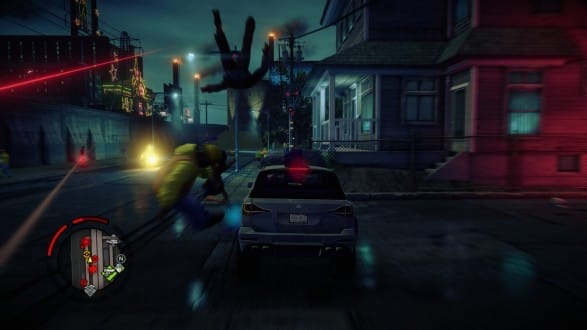At the time of writing, there are nearly a dozen unique rereleases of major games from the 360/PS3 era onto the ‘new gen’ XBOX One and PS4 with signs of many more to come. To clarify, the count operates under the rule of excluding lower budget/indie titles and direct ports such as Rayman Legends. Only the titles that use words like ‘Remaster’, ‘Redux’ or ‘Definitive’ in the title count in conjunction to games that add additional features and content such as the case for Grand Theft Auto V. Without further ado, here is the list of the ‘remasters’.
Saints Row IV: Re-Elected [PS4/XONE]
The Last of Us Remastered [PS4]
The Master Chief Collection [XONE]
Sleeping Dogs: Definitive Edition [PS4/XONE]
Tomb Raider {2013}: Definitive Edition [PS4/XONE]
Grand Theft Auto V [PS4/XONE]
Metro Redux [PS4/XONE]
The Walking Dead: The Complete First Season [PS4/XONE]
Diablo III: Ultimate Evil Edition [PS4/XONE]
Dynasty Warriors 8: Xtreme Legends Complete Edition [PS4]
Injustice: Gods Among Us - Ultimate Edition [PS4]
At its very core, the video game ‘remaster’ is a rerelease of an existing title onto new hardware offering something different from the original baseline version. The typical bare minimum for a title to be considered a remaster is slightly improved visuals/performance plus include some, if not all, of the DLC. In this sense, the practice is quite similar to the ambiguous threshold for similarly defined ‘remasters’ of movies. Titles such as Blade Runner have had several revisions before being considered ‘complete’. The insult to injury is that many of these remastered game titles came out within 16 months of the initial versions. In many cases, an argument can be made that these rereleases are ‘double-dipping’ as a cash grabbing tactic. Prices of these titles can widely differ depending on the publisher and perceived ‘value’ of the remastering.

No peaking at the native resolution, big guy.
The eighth gen is the first generation to have consoles that support x86-64bit architectures, which is the same framework as most modern PCs. The original XBOX had an x86-32bit architecture that allowed for PC ports, such as Counter-Strike, onto the console. At the time, these types of games would have been very difficult to port to either the PS2 or Gamecube. X86-64bit has become more prominent in the last year years with the advent of multi-core CPUs and applications that require the use of more than one core. These elements are all fine and dandy for a ‘technical lesson’, but how exactly does this tie into the various ‘remastered’ titles? Simple: many of the games on that list previously had PC versions long before the PS4 and XONE re-releases.
This all may sound like a ‘conspiracy theory’ and it is very likely that most of the studios would deny simply releasing the PC versions at the ‘equivalent’ specs on the ‘new gen’ consoles. The giveaway is the speed in which these ‘remasters’ began to appear after the success of the Tomb Raider Definitive Edition in early 2014. VGchartz, a site of rough estimates rather than concrete sales figures, collectively shows sales for the ‘Definitive Edition' in excess of one million copies worldwide. Is it any wonder why some companies are rushing to milk this cow? The total lack of backwards compatibility on these consoles means that these ‘remasters’ are the only way to play the respective titles for those who sold their old console. In one particular case, the port of Walking Dead Season One exists partly because of the inability to transfer data between the ‘last gen’ and ‘new gen’ consoles. Given the success of the Telltale series, it is inevitable that later seasons may be ‘new gen’ exclusives to further incentivize re-purchasing earlier seasons that saw release on 360/PS3.
Anyone who switched from VHS to DVD is all too familiar with the notion of rebuying media. This practice existed thanks to a total lack of backwards capability prior to the advent of Blu-Ray players supporting DVD. For a while in the 2000’s, the notion of backwards compatibility was standard for all of the major consoles in some fashion. Backwards compatibility is one of those features that help to incentivize a console during the initial ‘drought’ of new content. What has happened in the last few years is a total shift to blatant incompatibility for the sake of additional revenue. The ‘dream’ example of a modern purchase is someone buying a digital version of one of these remasters at full price. That scenario is pure profit for the publisher and marketplace owner with no capacity for a ‘used market’.
There is the devil’s advocate argument against the digital distribution marketplace: Steam. The crucial difference is the ‘Steam sale principle’ where the majority of games will eventually go on major sale. Take the recent sale of Saints Row IV for example. It was selling for $7.49 on Steam during the weekend prior to the $30 ‘Re-Elected’ version of the game on the new gen consoles. This title isn’t the only one that has seen multiple <$10 sales sporadically through the year. Tomb Raider and even the base version of Sleeping Dogs have seen multiple instances of these sales in the last few months. The enhanced version of Sleeping Dogs on PC features improved visual effects that boil down to a cosmetic upgrade. The moment this edition goes on a major Steam sale will be when those who own the original might make a purchase. PC versions of multiplatform titles tend to be better and, ultimately, cheaper than the console releases. This isn’t some sort of ‘PC Master Race’ elitism; it is consumer advice.

The concept of the remaster can’t be viewed entirely with a lens of pessimism and cynicism. The addition of either meaningful new content or significant technical improvements may be enough to incentivize purchase of a re-release. The meaningful additions in the port of Grand Theft Auto V make it worthwhile for people who want to experiment with the first person mode and the revised on-line features. Metro 2033 Redux, part of the Metro Redux release, exists as a complete remake of the title in the improved engine used in Metro: Last Light. The rerelease of the Metro games allows for console players to experience versions that improve upon the last generation versions on a technical level. Diablo III: Ultimate Evil Edition, on the PS4 and XONE offers the killer app of native controller support; a feature absent from the PC version. There are justified rereleases of titles, but the only one of these titles features a truly exclusive bonus feature. Metro Redux is already on Steam and Grand Theft Auto V will be coming out on PC in late March.
Nintendo has indulged in its own form of remasters over the last two generations in the forms of the Wii rereleases of earlier Gamecube releases and now in the form of the digital versions of Wii games on the Wii U. The primary differences between the Gamecube releases and Wii ‘enchanced’ versions of the titles were the implementation of motion controls and the classic controller in place of Gamecube controller support. Perhaps the most famous example of this series of ports is the Metroid Prime Trilogy that added the motion controls from Metroid Prime 3: Corruption to the prior titles. The multiplayer from Metroid Prime 2:Echoes survived the transition with the only ‘cut content’ in the game being one instance of a character saying ‘Damn’ being replaced with ‘NO’. Other titles like the re-releases of Pikmin and Pikmin 2 acted as second printings of titles that became very uncommon.
The sole example of a Wii U retail rerelease so far is The Legend of Zelda: The Wind Waker HD. The majority of the changes in the game, apart from the technical improvements, alter the experience ever so slightly. For example, the ‘swift sail’ removes some of the tedium associated with the sailing. The Wii Digital releases offer no changes beyond allowing the game to run natively in Wii U mode instead of switching to Wii mode. The digital rerelease of Metroid Prime Trilogy suggests that other rare Wii games such as Fire Emblem: Radiant Dawn might eventually see re-release through this service.
The Last of Us: Remastered is the elephant in the room when it comes to the various remasters. A digital copy of the game is the current pack-in title with the baseline model of the PS4. This is perhaps the hardest remaster to discuss since many people are experiencing the game for the first time on the PS4. There are many former XBOX fans that didn’t have the chance to play the PS3 version because of ‘console war politics’. It is also the one title from the earlier list with no potential for a PC release. Inversely, enough XONE games have been ported to PC to suggest that a port of The Master Chief Collection may be a way to recoup development costs.
Does this mean that The Last of Us: Remastered is the one entirely justified remaster? Here’s the real question: why was the PS3 version necessary if the rerelease completely blew it out of the water? Features such as 60fps mode in conjunction to improved technical performance make the PS3 version with its examples of .01% for loading a complete joke.
The real kicker about The Last of Us: Remastered is the notion of the game as a fully realized work of art. This reputation places the game in a position where further ‘tweaks’ could affect the overall work negatively. Given the uncertainty of the differences in the film adaptation, what is there to stop another ‘Remaster’ once the ‘Complete Cut’ version of the film is released at a later point? What about the sequel? Will working on the movie concurrently affect that scripting process? I hope not.
Do you think any of these remasters are worth a purchase? If not, what amount of differences would be enough to justify them?
Have a tip, or want to point out something we missed? Leave a Comment or e-mail us at tips@techraptor.net













